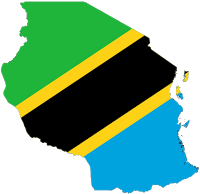TANZANIA: Catholic Church – Catalyst of Social Services in Tanzania

As the Catholic Church in Tanzania celebrates the 150th Jubilee of Evangelization which shall reach its climax with festive activities from 2nd to 5th November 2018, statistics reveal that the Church was the first to build first schools in the country, and to initiate health services.
In his work, 150 years of Evangelization in Tanzania: Joy of the Gospel (2018), the Coordinator of the Jubilee, Fr. Dr. Faustine Kamugisha has argued that, in fact the Catholic Church in Tanzania is celebrating its success story in both the spiritual and physical aspects of evangelization.
“Apart from having best schools in Tanzania, it is also a fact that the Catholic Church was the first to build a school in main land Tanzania, at Bagamoyo in particular. We are celebrating this Jubilee to give thanks to God and to evaluate where the Church has come from; where we are today; and where we are going. We are proud and thankful to God because the Church’s presence has added value to the Tanzanian society by proclaiming the Gospel and sanctifying the people of God through various Sacraments; and also by providing various social services,” Fr Kamugisha has explained.
He also affirmed that since the coming of the first missionaries to Tanganyika, now Tanzania, during colonial era and after, the Church has highlighted the importance of education for human development and health centres as a social service.
During colonization by the Germans (18885-1918), the missionaries initiated primary schools and taught children how to read, to write and to count, together with giving religious education. Bagamoyo was one of the first missions to established school, followed by many others in the coastal area and Zanzibar.
Although the missionaries provided education for freed slaves in Bagamoyo, they also went into Tanzania mainland and set up civilization centers especially for areas that were well-known for business.
By the year 1900 Catholic schools had enrolled over 7,500 students; by 1911 they had over 86,942 students; and by 1913 there were over 114,651 students.
As Tanzania is celebrating 150 years of evangelization, the Church also celebrates Catholic learning institutions that are owned by the Tanzania Episcopal conference (TEC), which includes more than 100 kindergarten schools. Almost every Catholic parish in the 34 Catholic Dioceses has a kindergarten schools; primary schools; and secondary schools, including minor seminaries. In fact, there are 235 secondary schools that are under TEC.
The Church also owns 75 registered vocational training centers that impart technical skills to young people; and 4 full fledged Catholic universities, namely the Saint Augustine University of Tanzania (SAUT), Catholic University of Health and Allied Sciences (CUHAS), Ruaha Catholic University (RUCU) and Mwenge Catholic University (MWECAU).
It is largely the Catholic nuns who, as missionaries, provided medical care services so as to support pregnant women, young children and to fight against malaria. The men missionaries invited different women Congregations to come to Tanzania to offer these health services – nuns from Ireland, Italy and Canada Since 1954, Salvadorian nuns started at Ndanda Hospital began to train nurses.
In 1953 the British colonial government allowed the Church to continue to provide medical care so much that by 1961, the Catholic Church already had 23 General Hospitals and 8 health Centers. Currently, the Catholic Church in Tanzania owns One Zonal Consultant Referral Hospital; six Regional Hospitals; 19 Council Designated hospitals; 29 Voluntary Agency Hospitals; 94 Health Centers; and 338 Dispensaries.
∽End∽
Sarah Pelaji, TEC


